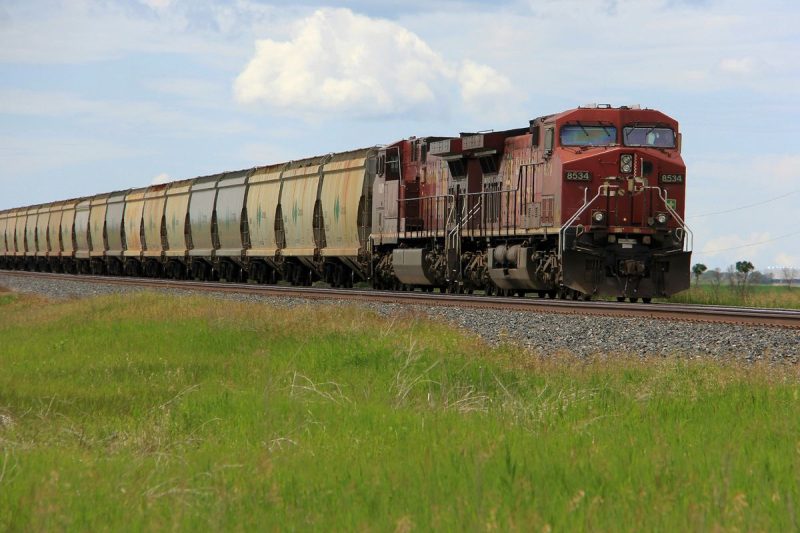Editor’s note — The Teamsters Union said on Thursday (August 22) night that Canadian National Railway Company workers will return to work on Friday (August 23). The work stoppage at Canadian Pacific Kansas City remains in place pending an order from the Canada Industrial Relations Board.
Canadian rail workers are off the job on Thursday as representatives from the Teamsters Union and Canada’s two largest rail companies, Canadian National Railway Company (TSX:CNR,NYSE:CNI) and Canadian Pacific Kansas CIty (TSX:CP,NYSE:CP), were unable to reach a new contract agreement.
The two sides have been involved in contract negotiations since the start of the year, but talks broke down as workers were looking for commitments to improve safety measures and continuing labor shortages.
Union employees originally voted in favor of strike action in early May, but because the rail industry in Canada is federally regulated the vote was only valid for 60 days. In late June, rail workers reaffirmed their desire to strike, with 98.6 percent of workers voting to reauthorize a strike and an 89.5 percent turnout.
Negotiations between the union and CPKC stalled as they have failed to reach commitments over safety-critical fatigue provisions that would mean longer hours for rail workers. The union said the move would increase the risk of derailment and other accidents.
At issue with CN are rule changes that would see rail workers forced to relocate across the country for months at a time to cover labor shortages in remote communities.
Both parties have accused the other of not taking the bargaining process seriously, and the breakdown saw approximately 9,300 workers locked out early Thursday.
More than C$1 billion in goods are being shipped every day across Canada and will have an outsized effect on the agriculture sector. Canada is the world’s top supplier of potash with more than 12 million metric tons shipped since the start of 2024, the majority being transported by rail.
In an email, Josh Linville, vice president of fertilizers with StoneX, noted that the impact on the agricultural sector will come down to how long the strike lasts.
“A lot of the fallout still comes down to how long this lasts. A couple of days or a week shouldn’t have a huge impact on the fertilizer markets. However, much more than that and we likely start seeing inland values rise on tougher logistics/market trying to establish new logistical routes,” he said.
The stoppage will also have a considerable impact on the Canadian oil sector which saw an average of 89,204 barrels per day of oil shipped in June. More broadly, the resource sector will see challenges in getting goods to market with approximately 50 million kilograms of copper, 15,000 kilograms of gold and 20,000 kilograms of silver being shipped each month.
Securities Disclosure: I, Dean Belder, hold no direct investment interest in any company mentioned in this article.
This post appeared first on investingnews.com
